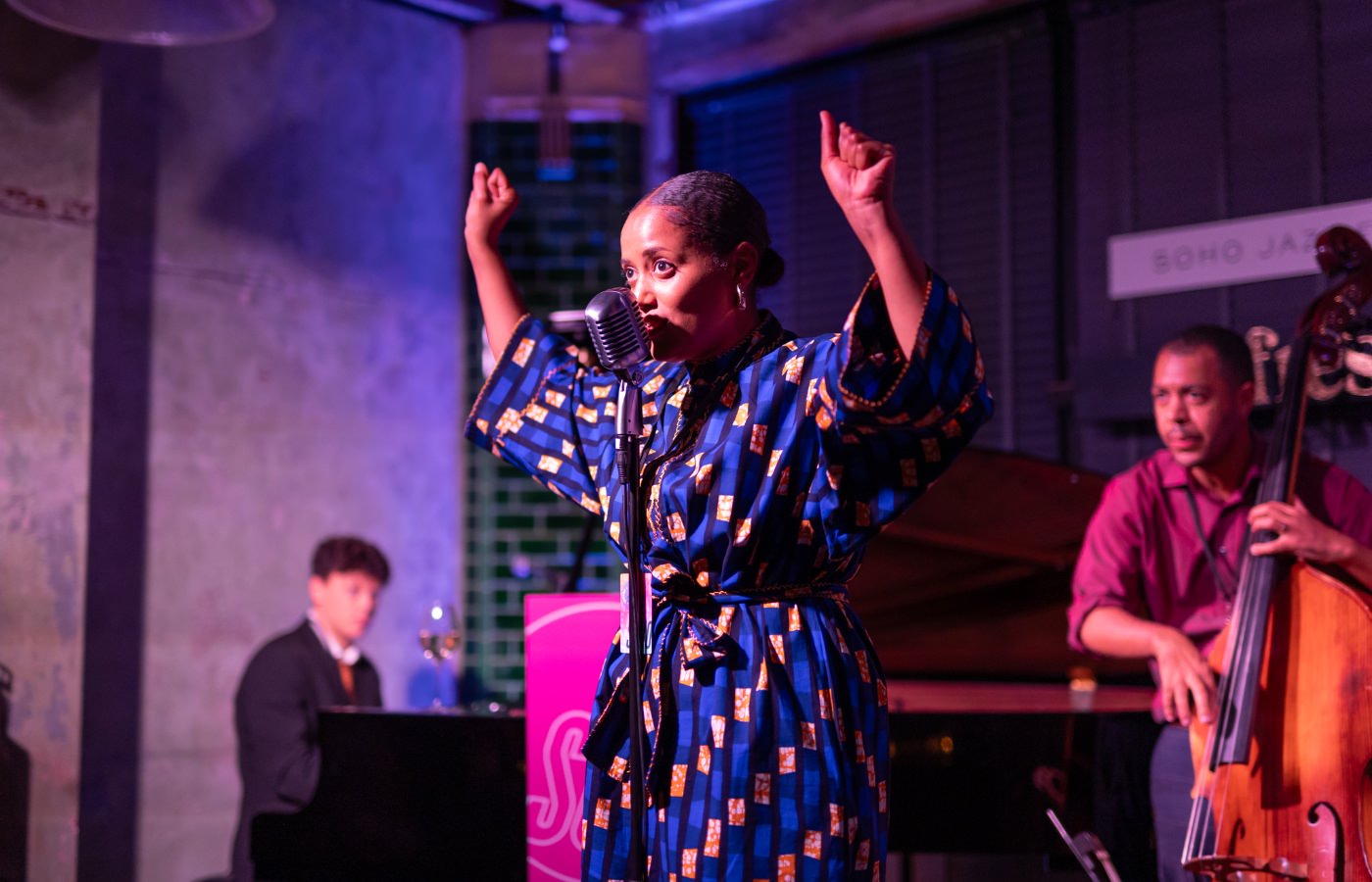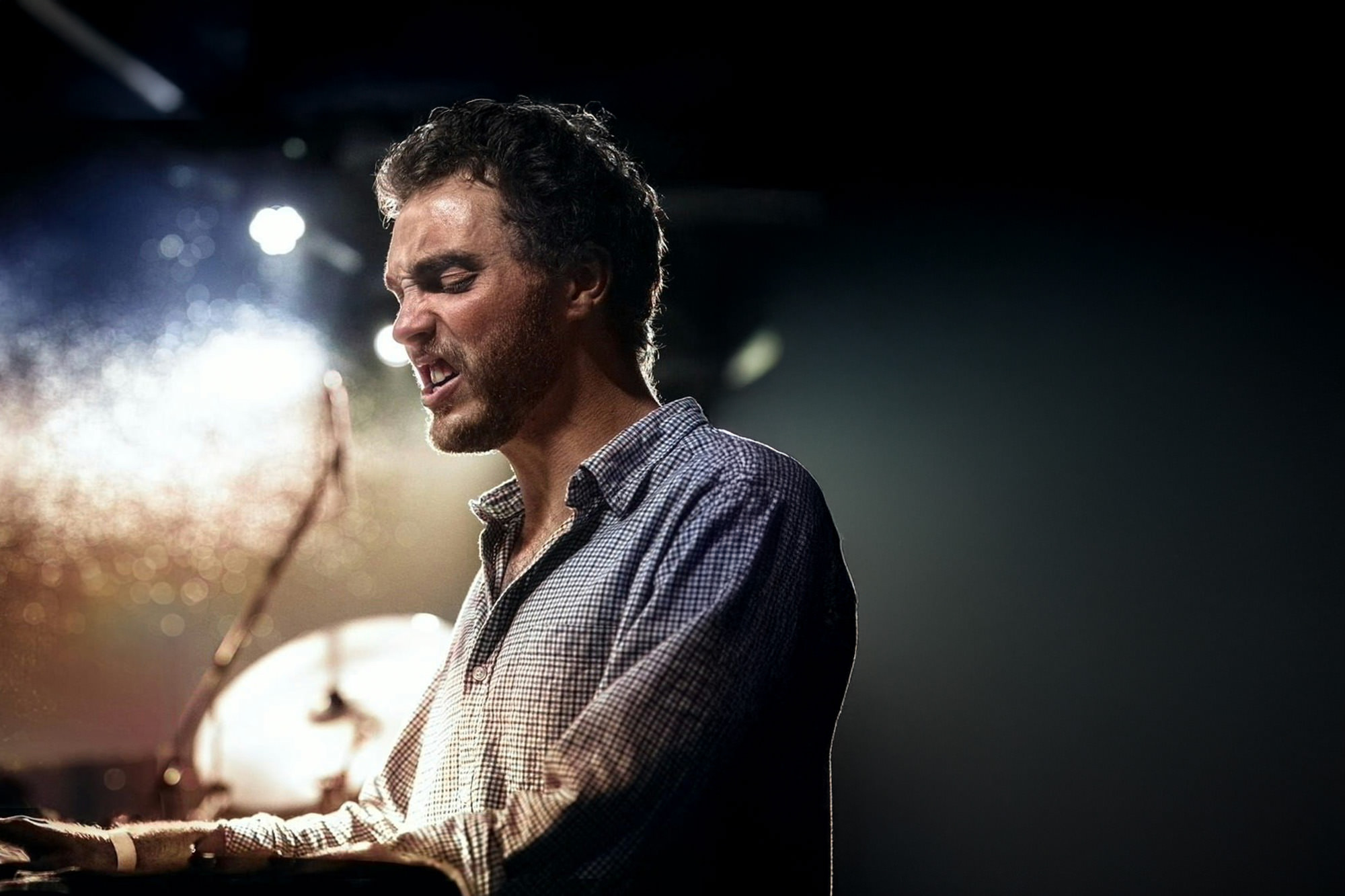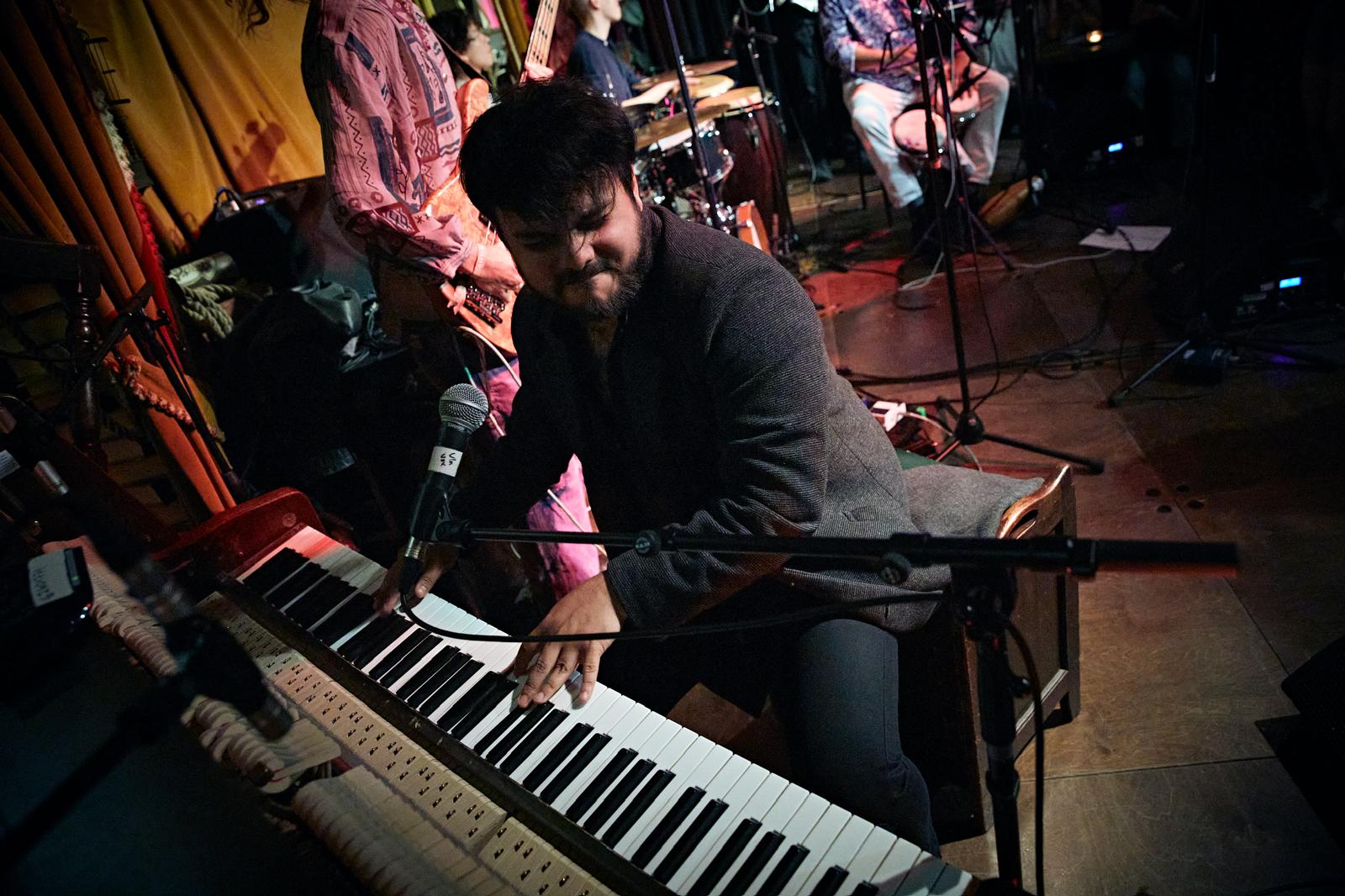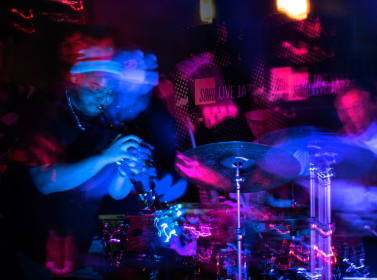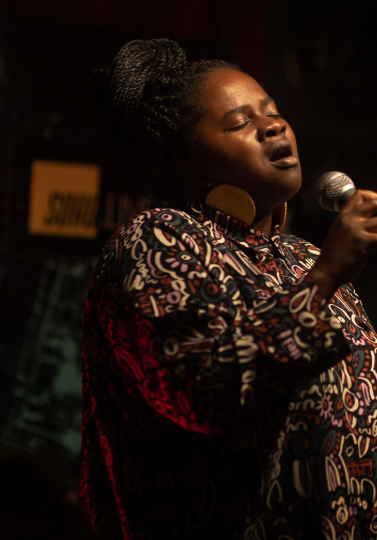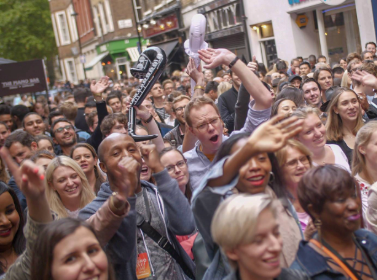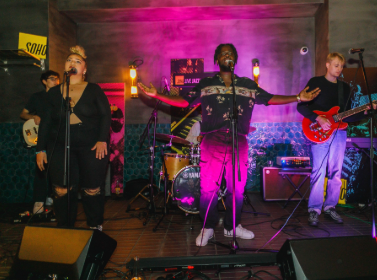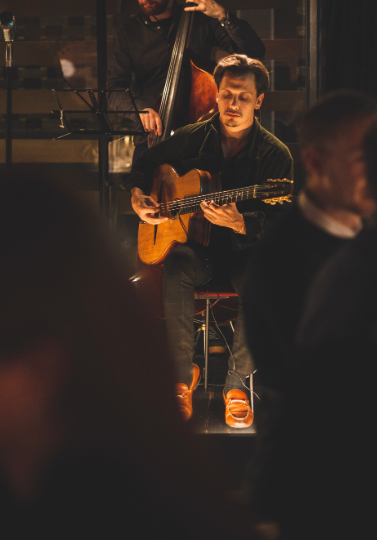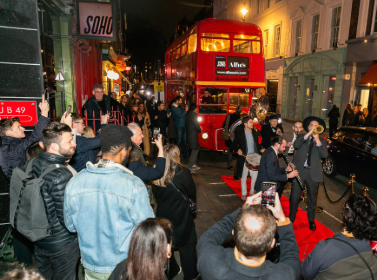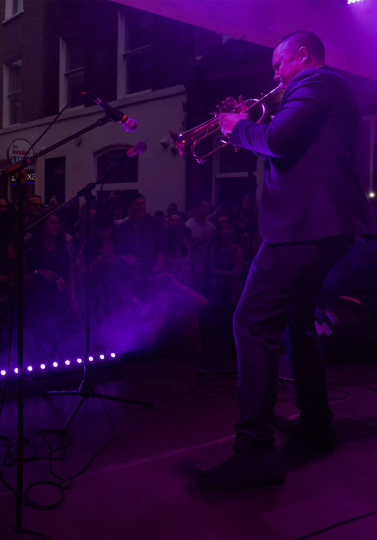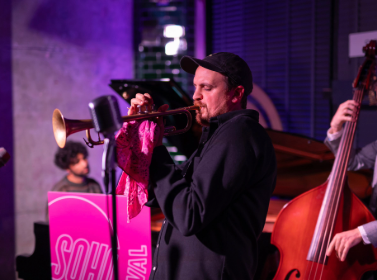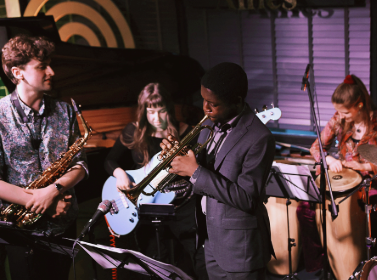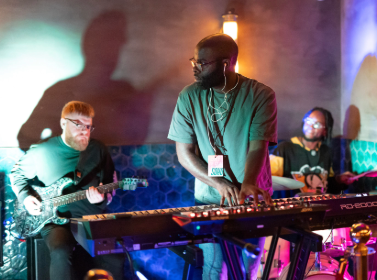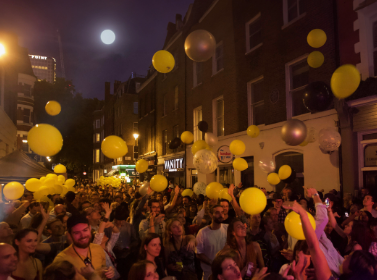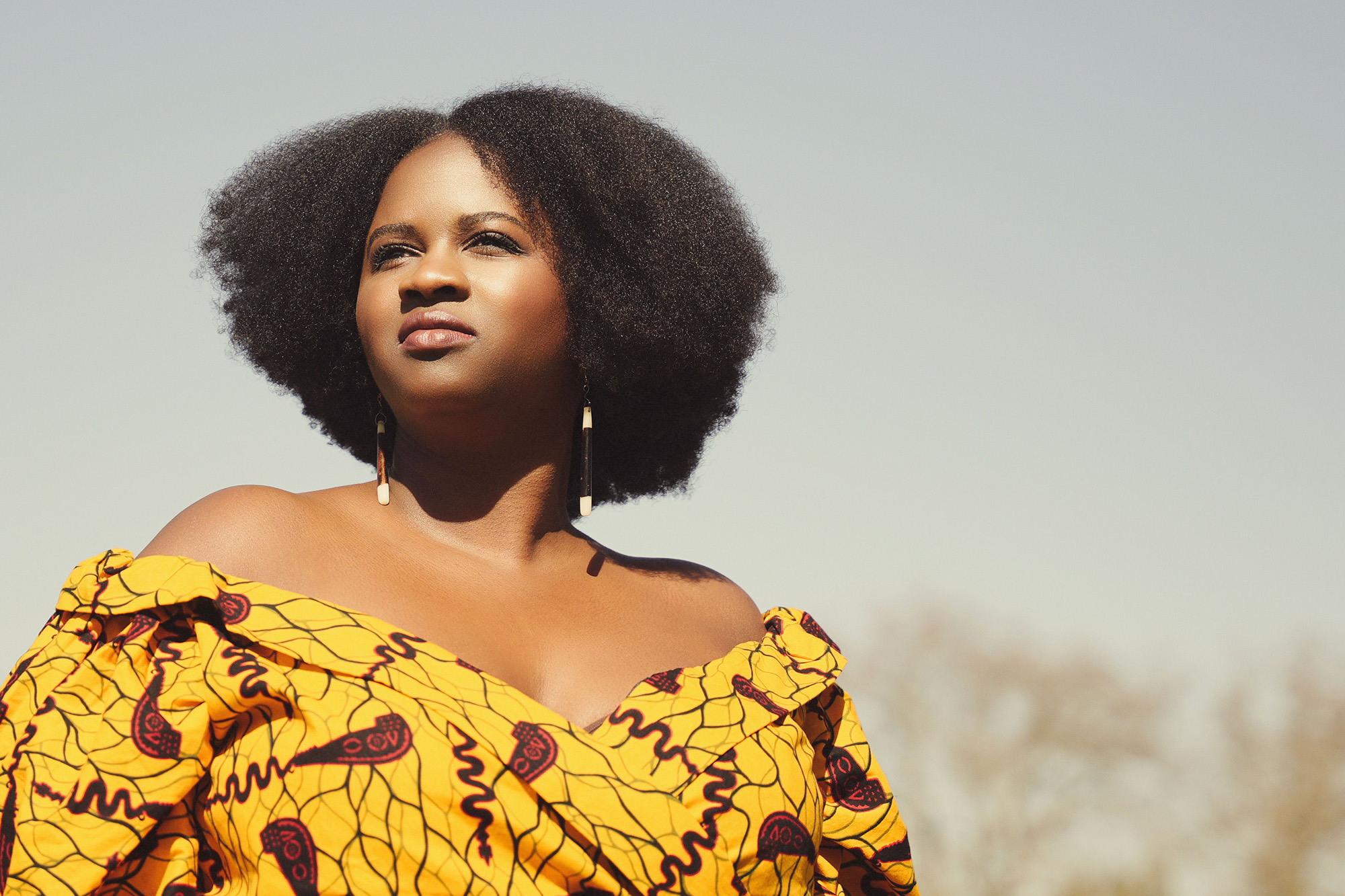
"Ibuka" means "remember" in Kinyarwanda — can you tell us about the significance of this title and how it connects to your personal journey?
Kinyarwanda is the main language of my country of birth Rwanda, though I don’t speak it myself. I left Rwanda when I was very young. I was adopted by a Belgian family at the age of 9months.
The album is dedicated to your late adoption mother, Francine. What role did she play in your life musically and emotionally, and how did her influence shape this project?
Francine meant a lot to me. For the majority of my youth I knew very little about my biological family. She was the only mother I ever knew and I loved her very much. Losing her (She passed away in 2012 from cancer) at the age of 19 was very hard and It took me a long time to be able to move on. She wasn’t very musical herself, but she could see I really enjoyed music. She gave me the opportunity and space to develop this passion further. Focusing on Jazz music really helped me dealing with her passing.
What was the emotional process like creating such a personal album? Were there moments in the writing or recording that were especially difficult — or healing?
Writing the album was quite cathartic to me. I prefer to write personal songs, I find it easier than finding inspiration in more generic themes. It’s really magical to see something so personal to you come to life. There was one difficult moment, one of the songs is called ‘Song For My Mother’ which is directly dedicated to Francine. That was a difficult one to sing in the studio.
Stylistically, "Ibuka" blends contemporary jazz with soul — how did you approach balancing elegance with raw emotional expression on the record?
I focus mostly on the lyrics, the story of the song is the most important and the chords have to fit with the emotion behind the words. I took a lot of inspiration from artists who in my opinion really succeed at that. Artists like Stevie Wonder, and James Taylor write beautiful music with sometimes quite advanced chord progressions whilst also writing meaningful personal lyrics. On this album I endeavoured to do the same.
The single “Silence” was released in July — what story does it tell, and why did you choose it as the first track to introduce the album?
Silence is the most soulful track on the album. It is a love song, (I tend to not write love songs) It’s about living with a complicated back story and finding it hard to express that to a partner. I just thought it was a good first tune from the album to introduce to an audience.
You wrote all the songs on "Ibuka" — can you walk us through your songwriting process? Do you start with lyrics, melody, or something else?
I tend to start with chords. I play around on the piano and play various combinations of chord progressions and when I find something I like the sound of, I start looking for words. Then I change the chords according to the emotion behind the words.
What was it like working with your band on this project? Did you write with them in mind, or did the arrangements evolve collaboratively in the studio?
I absolutely loved working with this band. Michael, Rob, Ben and Kuba are all incredible at their instrument and they are just really fun people to hang out with. Usually, I would give them my sheet music and together we would come up with particular grooves that would suit the vibe of the song.
The album’s release coincides with the Soho Jazz Festival. Was that timing intentional, and how does it feel to share "Ibuka" with audiences in a live setting during the festival?
I guess it was yes. Alfie’s is one of my favourite venues to play at. I’ve had some great performances there and the audience has always been lovely. The album is meant to be experienced live, I think the Soho Jazz Festival will be the perfect occasion to present the album to an audience.
What do you hope listeners take away from "Ibuka"? Are there particular emotions or messages you want to leave with them?
The album is about hope and resilience. This is not a sad album, there’s a lot of joy in the music and the feeling of being grateful for what you currently have.
Your music draws from both jazz, folk and soul traditions. Who are some of your biggest musical influences, and how do they echo through "Ibuka"?
Gretchen Parlato, Stevie Wonder, James Taylor and Nancy Wilson. Gretchen is really good at mixing Jazz with other genres and Stevie Wonder's chord progressions are full of surprises yet his music is so singable. I love the personal poetic lyrics of James Taylor and how he puts his own spin on Folk music. Nancy Wilson's and Cannonball Adderley’s album is a master in how voice and sax can weave in and out of each other. In my music I took a similar approach to these artists.
You’ve collaborated with Alex Webb and The Copasetics on "Women’s Words, Sisters’ Stories". How did that experience shape your growth as an artist and composer?
During the making of ‘Women’s Words, Sisters’ Stories’ I had the chance to dive deep into the works of female songwriters and musicians within the Jazz genre. It was just really inspiring and I discovered a lot of new music.
How do you see the role of women in jazz evolving today, and what spaces or support networks have been important in your journey?
Women are playing a big role in today’s jazz industry. There’s a lot more female led bands than before. London venues are very welcoming to new talent, when I moved to the UK I received a lot of support and encouragement from the London scene.
Looking ahead, what’s next after "Ibuka"? Are there themes or musical directions you’re already starting to explore?
I’m already thinking about the next album. I love my current band and intend on recording with them again, but maybe I’ll add more instruments next time...
